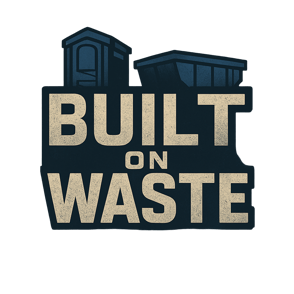Why Good Drivers Quit — And How to Keep Them (The Real Talk Version)
Good drivers are worth their weight in diesel. Lose one, and you don’t just lose a driver — you lose customers, time, money, and your crew’s trust. Here’s a deeper look at why they really quit, what you can do (even on a small budget), and what your competition hopes you never fix.


🚛 Everyone in this industry says the same thing: “It’s hard to find good help these days.”
Reality check? Good help exists — but they won’t stay if you make it easy to leave.
Here’s a no-BS look at why drivers quit (even the loyal ones) and how to fix it for good.
💰 1️⃣ Pay That Matches the Grind (and the Risk)
Your drivers are a rolling billboard for your company — but they’re also rolling liabilities: traffic tickets, spills, accidents, and customer complaints land on them first.
Why it matters:
Cheap pay equals fast turnover. Every new hire costs you:
Hiring ads or recruiter fees
HR time
2–4 weeks of ride-alongs and rookie mistakes
Overtime for covering shifts
Multiply that by 2–3 quits per year? It adds up to tens of thousands in hidden costs.
✅ Better than a raise:
Add performance pay. Small bonuses for spotless units, no damage claims, no missed stops.
Loyalty pay bumps. Add 50¢ or $1 per hour every year they stay. It’s peanuts compared to turnover.
CDL upgrade help. Pay for Class B training in exchange for a 1–2 year stay agreement.
🗺️ 2️⃣ Routing and Schedules That Make Sense
Drivers don’t quit because the work is hard — they quit because you make it harder than it needs to be. Overbooked days. Impossible routes. No plan for traffic or site issues.
How it drains you:
Late jobs = refunds and bad reviews. Missed stops = extra trips tomorrow. Burned-out drivers = more mistakes.
✅ How to fix it:
Use simple routing software or even Google Maps with pinned clusters.
Cut out dumb double-backs and last-minute add-ons.
Get driver feedback on routes that suck. Reward cost-saving route tweaks — your crew knows shortcuts dispatch doesn’t.
🤝 3️⃣ Culture of Respect (and Real Communication)
The portable sanitation and dumpster game is rough, thankless work. If your dispatch or office treats drivers like second-class employees, you’re begging them to quit.
Signs you have a respect problem:
Drivers stop talking in meetings.
Techs fake equipment checks just to avoid complaints.
Nobody reports small problems until they’re big.
✅ Fix the culture:
Run 5–10 minute “tailgate talks” every morning.
Call out wins. “Chris cleared 35 stops with zero complaints — badass work.”
When a customer is unreasonable? Back your driver up — loyalty is earned both ways.
🔧 4️⃣ Trucks and Equipment That Don’t Embarrass Them
Nothing drives a good driver out the door like constant breakdowns, filthy cabs, or tools that don’t work.
What it costs:
Lost time on the road.
More tow bills.
More lost customers who see sloppy gear.
✅ How to fix it:
Budget for small upgrades each quarter — a better pump hose, new seals, even clean seat covers.
Encourage drivers to report issues — no blame games.
Rotate old trucks out on a set plan, even if it’s one every year.
🎓 5️⃣ A Future Worth Sticking Around For
Good people want more than a paycheck — they want a reason to stay. If your best driver is doing the same route, same pay, same thankless calls for 10 years… your competition will poach him.
✅ How to show them a future:
Cross-train: Let them learn roll-offs if they start with toilets.
Trainer bonus: Pay senior drivers more to train rookies. It makes them feel trusted and invested.
Talk career paths openly — lead driver, route supervisor, yard supervisor.
🏆 EXTRA TIPS FROM THE FIELD:
✔️ Feed ‘em sometimes.
Friday donuts or hot breakfast once a month buys more goodwill than a billboard ad.
✔️ Swag matters.
A clean branded hoodie, good gloves, or a new hat makes your crew look and feel professional.
✔️ Ask their family.
Send a birthday card to a driver’s kid. Pay for a little holiday bonus. Families remember that when other job offers show up.
✅ Bottom Line:
Good drivers don’t quit good companies.
They quit lazy planning, disrespect, and dead-end jobs.
Fix it — or train a new rookie every three months while your competition keeps the pros.
📣 Built on Waste — For Those Who Know the Grind
